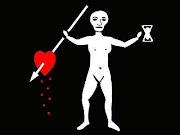Illustrated by anecdotes of distinguished artists and statesmen of both continents.
by
Jean Anthelme Brillat-Savarin
Translated from the last Paris edition by Fayette Robinson.
http://ebooks.adelaide.edu.au/b/brillat/savarin/b85p/complete.html#part6
Phenomena of Dreams.
Certain strange phenomena accompany sleep and dreams. Their study may perhaps account for anthropomania, and for this reason I record here, three observations, selected from a great many made by myself during the silence of night.
(...)
A few months ago while asleep I experienced a sensation of great gratification.
It consisted in a kind of delicious tremor of all the organs of which my body was composed,
a violet flame played over my brow.
Lambere flamma comas, et circum temporo pasci.
I think this physical state did not last more than twenty seconds, and I awoke with a sensation of something of terror mingled with surprise.
This sensation I can yet remember very distinctly, and from various observations have deduced the conclusion that the limits of pleasure are not, as yet, either known or defined, and that we do not know how far the body may be beatified.
I trust that in the course of a few centuries, physiology will explain these sensations and recall them at will, as sleep is produced by opium,
and that posterity will be rewarded by them for the atrocious agony they often suffer from when sleeping.
The proposition I have announced, to a degree is sustained by analogy, for I have already remarked that the power of harmony which procures us such acute enjoyments, was totally unknown to the Romans. This discovery is only about five hundred years old.
In the year VIII (1800,) I went to bed as usual and woke up about one, as I was in the habit of doing. I found myself in a strange state of cerebral excitement, my preception was keen, my thoughts profound; the sphere of my intelligence seemed increased, I sat up and my eyes were affected with a pale, vaporous, uncertain light, which, however, did, not enable me to distinguish objects accurately.
Did I only consult the crowd of ideas which succeeded so rapidly, I might have fancied that this state lasted many hours; I am satisfied, however, that it did not last more than half an hour, an external accident, unconnected with volition, however, aroused me from it, and I was recalled to the things of earth.
When the luminous apparition disappeared, I became aware of a sense of dryness, and, in fact, regained my waking faculties. As I was now wide awake, my memory retained a portion of the ideas (indistinctly) which crossed my mind.
The first ideas had time as their subject. It seemed to me that the past, present and future, became identical, were narrowed down to a point, so that it was as easy to look forward into the future, as back into the past. This is all I remember of this first intuition, which was almost effaced by subsequent ones.
Attention was then directed to the senses, which I followed in the order of their perfection, and fancying that those should be examined which were internal as well as external, I began to follow them out.
I found three, and almost four, when I fell again to earth.
1. Compassion is a sensation we feel about the heart when we see another suffer.
2. Predilection is a feeling which attracts us not only to an object, but to all connected with it.
3. Sympathy is the feeling which attracts two beings together.
From the first aspect, one might believe that these two sentiments are one, and the same.
They cannot, however, be confounded; for predilection is not always reciprocal, while sympathy, must be.
While thinking of compassion, I was led to a deduction I think very just, and which at another time I would have overlooked. It is the theory on which all legislation is founded.
Do as You Will Be Done by.
Alteri ne facias, quod tibi fieri non vis.
Such is an idea of the state in which I was, and to enjoy it again, I would willingly relinquish a month of my life.
In bed we sleep comfortably, in a horizontal position and with the head warm: Thoughts and ideas come quickly and abundantly; expressions follow, and as to write one has to get up, we take off the night cap and go to the desk.
Things all at once seem to change. The examination becomes cold, the thread of our ideas is broken; we are forced to look with trouble, for what was found so easily, and we are often forced to postpone study to another day.
All this is easily explained by the effect produced on the brain by a change of position. The influence of the physic and moral is here experienced.
Following out this observation, I have perhaps gone rather far, but I have been induced to think that the excitability of oriental nations, was, in a manner, due to the fact, that, in obedience to the religion of Mahomet, they used to keep the head warm, for a reason exactly contrary to that which induced all monastic legislators to enjoin shaven crowns.
For offline reading, the complete set of pages is available for download from http://ebooks.adelaide.edu.au/b/brillat/savarin/b85p/b85p.zip
The complete work is also available as a single file, at http://ebooks.adelaide.edu.au/b/brillat/savarin/b85p/complete.html
A MARC21 Catalogue record for this edition can be downloaded from http://ebooks.adelaide.edu.au/b/brillat/savarin/b85p/marc.bib
eBooks@Adelaide
The University of Adelaide Library
University of Adelaide
South Australia 5005







.jpg)














No hay comentarios:
Publicar un comentario